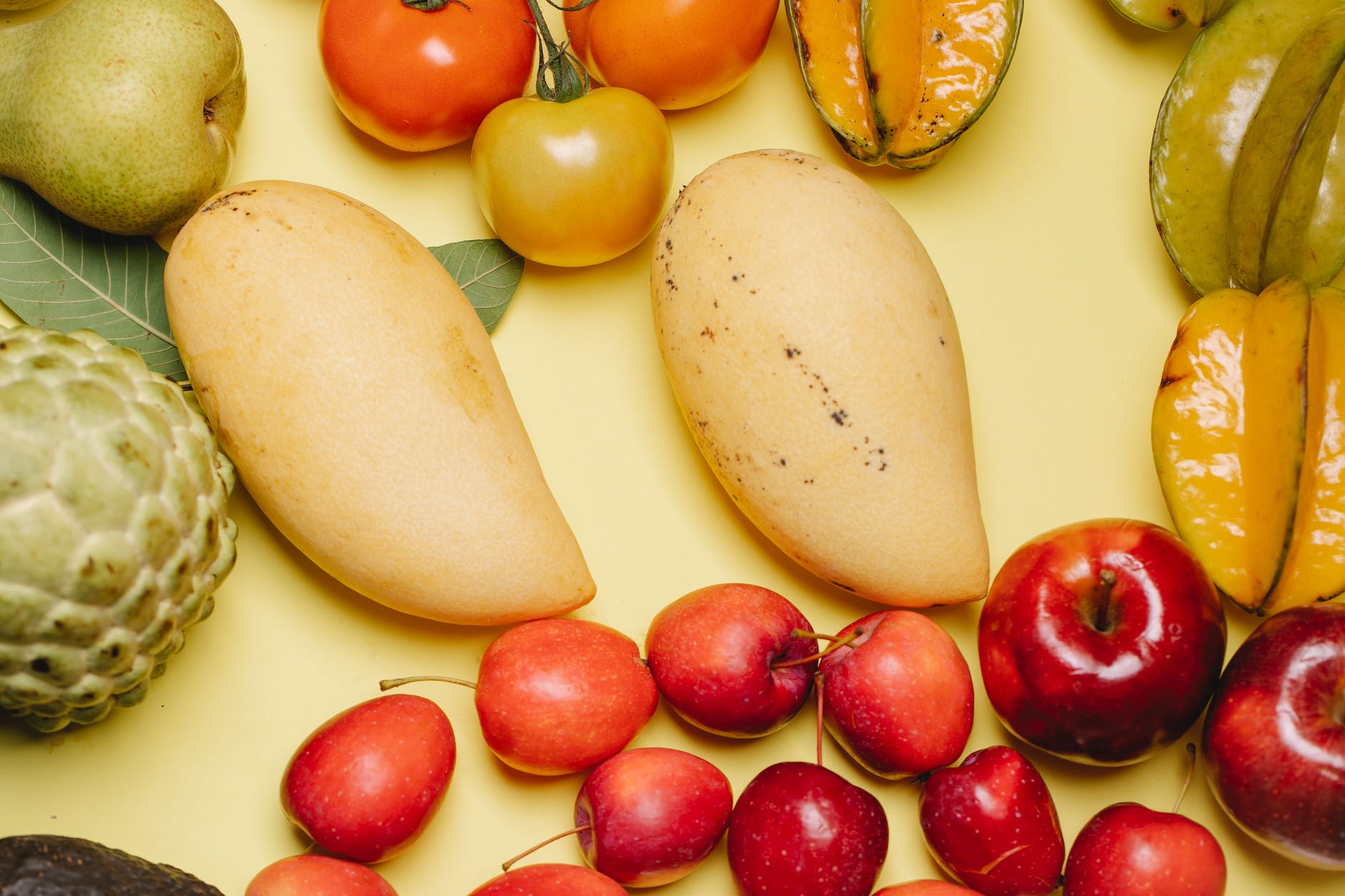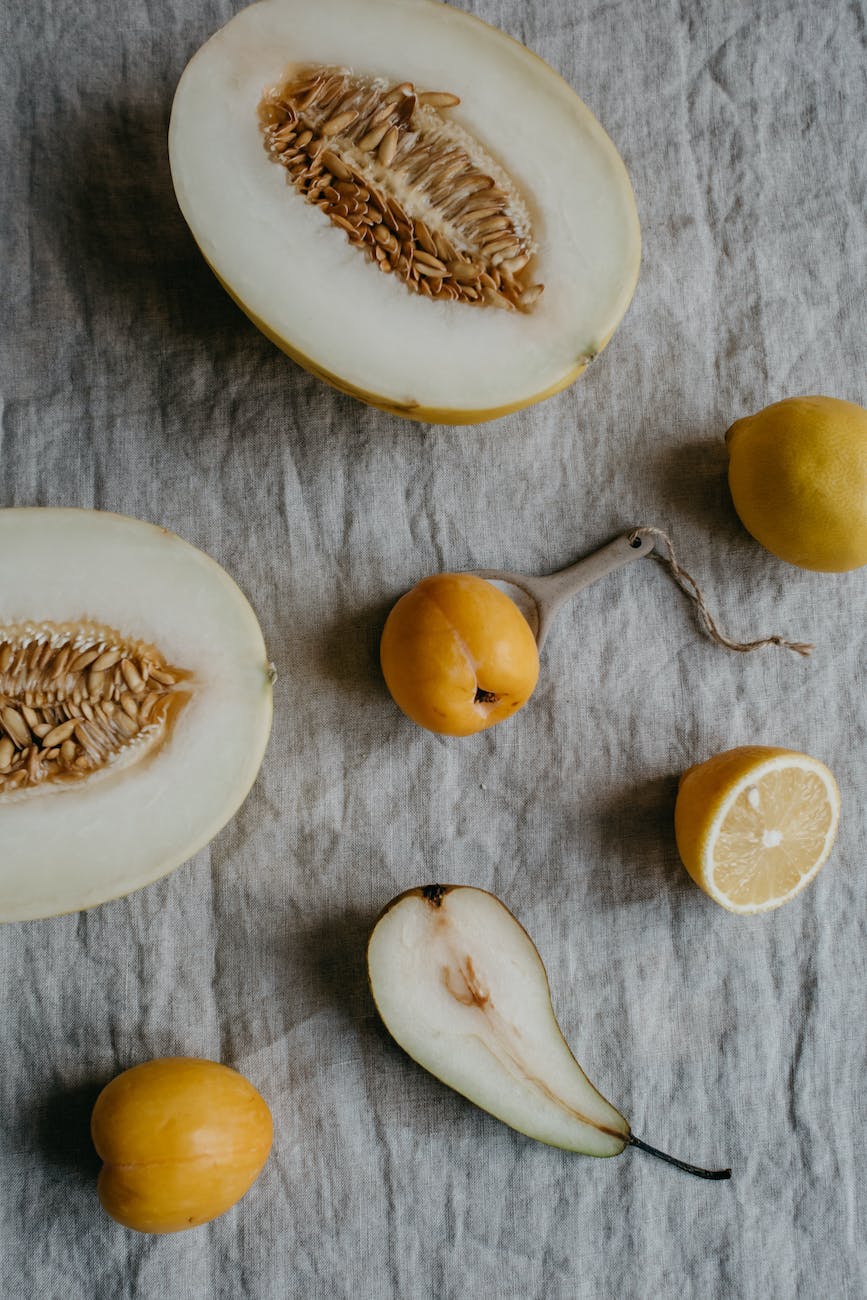
When it comes to supporting thyroid health, incorporating nutrient-rich fruits into your diet can be a delicious and beneficial strategy. Fruits are packed with vitamins, minerals, antioxidants, and fiber that contribute to overall well-being, including thyroid function. In this blog post, we will explore a selection of fruits that are known for their potential to support thyroid health, boost metabolism, and provide essential nutrients for optimal thyroid function.
6 Fruits Recommended for Thyroid
Let’s dive into the world of thyroid-friendly fruits and discover how these natural wonders can enhance your thyroid health journey! 🍎🍌🍇
- Blueberries: Antioxidant Powerhouses 🫐🦸♀️
Blueberries are rich in antioxidants, particularly anthocyanins, which help combat oxidative stress and inflammation in the body. These powerful antioxidants may support thyroid health by reducing inflammation and protecting thyroid cells from damage. Enjoy blueberries as a snack, blend them into smoothies, or add them to your favorite yogurt or oatmeal.
- Strawberries: Rich in Vitamin C 🍓🍊
Strawberries are bursting with vitamin C, a nutrient that plays a crucial role in supporting thyroid function. Vitamin C helps with the production of thyroid hormones and enhances the absorption of minerals like iodine, which is essential for thyroid health. Enjoy strawberries on their own, toss them into salads, or blend them into refreshing smoothies.
- Bananas: High in B Vitamins 🍌🍌
Bananas are not only a convenient and tasty snack but also a good source of B vitamins, including vitamin B6. B vitamins are essential for proper thyroid function as they help convert thyroid hormones into their active forms. Additionally, bananas provide fiber and potassium, which support overall health and may aid in thyroid regulation.
- Pineapples: Bromelain Benefits 🍍🌿
Pineapples contain an enzyme called bromelain, which has anti-inflammatory properties and may help reduce inflammation in the thyroid gland. Inflammation in the thyroid can impair its function, so incorporating bromelain-rich pineapple into your diet can be beneficial. Enjoy fresh pineapple chunks, add them to fruit salads, or blend them into tropical smoothies.
- Kiwi: Excellent Source of Vitamin C and Fiber 🥝🌿
Kiwi is a small but mighty fruit packed with vitamin C, fiber, and various other nutrients. Vitamin C supports thyroid health by promoting the production of thyroid hormones and protecting the thyroid gland from oxidative stress. The fiber content of kiwi also aids in digestion, promoting overall gut health, which is important for thyroid function.
- Oranges: Vitamin C Boosters 🍊🍊
Oranges are well known for their high vitamin C content, making them thyroid-friendly fruit. Vitamin C not only supports the production of thyroid hormones but also aids in the absorption of essential minerals like iodine. Grab a juicy orange as a refreshing snack, or enjoy freshly squeezed orange juice to kickstart your day.
Conclusion:
Incorporating thyroid-friendly fruits into your diet can provide a range of benefits, including supporting thyroid function, reducing inflammation, and providing essential nutrients. Blueberries, strawberries, bananas, pineapples, kiwi, and oranges are just a few examples of fruits that can boost your thyroid health. Remember to enjoy a varied and balanced diet, including a wide range of fruits, to provide your body with the diverse array of nutrients it needs. Embrace the natural goodness of these fruits and enhance your thyroid health journey in a delicious and nourishing way! 🍎🍌🍇











